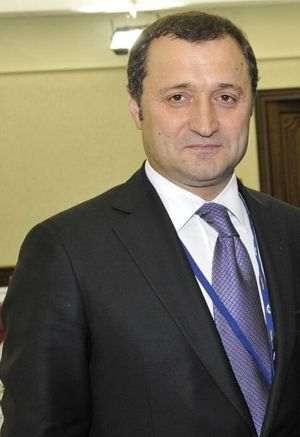Reporter: One of the burning issues that some banks, as well as some consumers are faced with, is that of loans denominated in Swiss francs. As OTP Bank is one of the institutions that have granted such loans and taking into account the fact that Banca Transilvania has a special program for Volksbank customers and that BCR has announced a similar pilot program, what measures is OTP considering taking in order to share the currency risk with debtors?
Laszlo Diosi: We have a pilot program of our own for CHF borrowers, but we have not yet analyzed its results. Through this offer, we can cut the interest rates so that the installments will fall below the level they were at in December 2014.
Reporter: Will the interest rate remain low for the entire duration of the loan or will that reduction be temporary?
Laszlo Diosi: Our offer applies for six months, but we want to stress the fact that, as we are telling our customers, the market has not yet stabilized and in this context, the program can be extended. After each period, we will review the possible course of action we can take to stabilize the installments at a level that does not exceed that of December 2014.
Reporter: The new product involves extending the repayment period or will those cuts come in the form of discounts?
Laszlo Diosi: Those will be discounts that we stand behind. We will bear 100% of the loss incurred by applying that discount. OTP allocates each month over 1 million lei for that program.
Reporter: When did the pilot program start?
Laszlo Diosi: We started off about two weeks ago, with a number of 75 people, and we estimate we will complete it within a month.
Reporter: Will the project apply only to individuals that are no longer capable of making their monthly payments or will it be aimed at those that are making their payments on time as well?
Laszlo Diosi: It won't be only for distressed debtors. We have several models, for several types of customers and we don't yet know what results we are going to have.
Reporter: A little before the Swiss franc gained in strength, you advised CHF borrowers not to convert their loans to another currency, an aspect which led to your being criticized by the public. What is your message for your customers this time?
Laszlo Diosi: It is not always easy speaking in a certain position, because I am an economist as well as banker, and when I talked about it I did so as an economist, with a rather long term outlook - an outlook which could actually come true. We know exactly what is behind this. The franc, just like the dollar, is a reserve currency and when there is a crisis in the world, like there was in 2008 when we were faced with that deposits crisis and when everyone went to deposit their money with CEC Bank, we could have other surprises with the franc and the dollar. Theoretically, the economy could develop differently in the future, and if the European Union develops very well, and in the US there will be trouble like there used to be in 2011, it can very easily happen that people would no longer invest in Switzerland, amid the lack of banking secrecy and the negative interest rates, and respectively, that the Swiss franc weakens. I am saying this as an economist, but as a banker, I am responsible with explaining all the points of view, and the final decision must come from the customer.
We can have risks with the Euro or the leu as well. Right now, the currency risk is replaced with the interest rate risk. If we are lending money now, when the interest rates are at a historic low, and a few years from now the ROBOR and the EURIBOR increase, then the interest rates will rise as well. Financial life comes with risks that can't be avoided. We have to be responsible, to explain the risks and to help people choose the risk that is a good fit for them.
Reporter: You've mentioned the interest rates. Is the banking system threatened by the fact that people could withdraw their deposits from banks due to the extremely low interest rates?
Laszlo Diosi: I think that the situation is rather stable, because banks have other forms of investment as well. For us, a very good lesson has been what has happened in Hungary, where the interest rates have been low for several years now and where people who wanted to earn more money have invested not in the banking sector that is supervised by the central bank, but in the private sector, through brokerage firms. Over the last few months, we've had some scandals because of that, because people lost money as a result of false promises. This should serve as a lesson for us, because when there will be high demand from the population for higher returns we will have to explain it to them that higher interest returns only come with higher risks. Where there are promises of low risks with high returns there must be a fraud, and people don't understand that.
Reporter: Given these circumstances, what could people invest in?
Laszlo Diosi: From an investment point of view, I am very conservative, I keep my money in Romania, in lei and in Euros, and I use the domestic investment funds, because they are the ones that I can understand and control and they are close to me.
Reporter: What is the current status of the lawsuits filed against OTP?
Laszlo Diosi: Some we lose, some we win, but we are trying to achieve settlements. I've gone to the meetings with the AURSF (ed. note: the Association of Romanian Users of Financial Services, which coordinates the collective negotiations between banks and customers on the topic of CHF loans). I am happy that such initiatives exist and we will continue our negotiations with them.
Reporter: You did not initially respond to the invitation of the AURSF to participate in negotiations. Why?
Laszlo Diosi: I have explained it before - the fact that we did not attend negotiations the first time was not because we didn't want to, but we've been busy with other problems as well. For example, we have to complete the program for integration with Millenium Bank (ed. note: which OTP Bank acquired). I think that this association, as well as the other consumers have been very well prepared, well-meaning and very open and we had a serious discussion of about two hours.
Reporter: People's confidence in banks is currently at a very low level...
Laszlo Diosi: God, yes! Indeed, people's trust in banks is low, very low, even.
Reporter: What are the banks doing to regain consumers' trust?
Laszlo Diosi: Unfortunately, the only thing we have on our side is time. We have to invest in educational projects, in CSR (ed. note: Corporate Social Responsibility) programs, to have more transparent products and more regular talks with our customers.
Reporter: What is the current state of corporate lending?
Laszlo Diosi: I think that lending is doing fine on the corporate and SME segment. On the corporate segment I am very satisfied with what we are doing now, the local business on the corporate segment is growing, and most of the loans are denominated in lei. On the SME segment there are still demand problems. We understand that economic circumstances are different now, but the SME segment needs to be better supported by the state, and have more aid with state guarantees.
Reporter: Is OTP Bank selling non-performing loans (NPL) and on what terms?
Laszlo Diosi: We have been selling non-performing loans for a long time, but when we clean up our portfolio, we sell those NPLs within the group, to a company called OTP factoring. Customers have the option of having a performance contract with that company as well. Once we have sold the portfolio to OTP Factoring, we do not necessarily sell the asset, the company tries to collect the money, through a mutual agreement with the customer. We do not sell directly on the market, there are many alternatives for OTP Factoring to recoup the money, by negotiating with customers.
Reporter: How high is the rate of non-performing loans of OTP România?
Laszlo Diosi: Because we are cleaning up our portfolio it is currently very low - approximately 7-8%. We are setting up provisions for over 80% of those NPLs, this year.
Reporter: How is this "cleanup" reflected in the banks' results?
Laszlo Diosi: Last year we had a very modest profit, and this year there are still major risks, which come from provisions.
When it comes to the business level I am optimistic, because we have higher revenues, more customers, we are actually pleased with the growth on the business segment.
Reporter: There is a new stress test coming up in the banking system. Are you prepared?
Laszlo Diosi: There has been another AQR last year and we are prepared for the one coming up this autumn, absolutely.
Reporter: And for the implementation of Basel III?
Laszlo Diosi: We are ready for Basel III as well. The differences will come from the HR side, when it comes to the management of liabilities or on the reporting side. That's where we had to change certain approaches, certain systems and once again we are ready.
Reporter: You have acquired Millenium Bank. Are you considering a new acquisition or merger?
Laszlo Diosi: We are open to any merger or acquisition, because Romania is a central market for OTP, where we can grow. There are currently problems in Ukraine and Russia, in Bulgaria we have a huge bank, and in Montenegro we have the biggest bank in the system. The markets that we can develop on are the ones of Slovakia, Serbia, Romania, and Romania has the biggest potential.
Reporter: Thank you!
Through its Romanian foundation, OTP Bank România is executing the - "Right to education" educational program, in various Romanian schools, in Bucharest, Prahova, Sebeş, Cluj etc.
Laszlo Diosi told us: "In the 2014-2015 school year, we have used this program for the Romanian education, having been present in 15 schools. We are talking about more than 600 youngsters who have benefited from our educational services in this first year, and we intend to double that number every year".
He said that through its foundation, the bank is currently seeking a center in Bucharest to conduct the educational program. "We do not yet have a set budget. The bank is behind the foundation, and if the foundation doesn't have the money, we will finance the project, but we first want to motivate the foundation to raise money from other sources - marketing, from the 2% of the income tax, from European funds etc.", Mr. Diosi further said.
In Hungary, OTP, in cooperation with the Hungarian Central Bank is conducting such a program which so far approximately 10,000 children and youngsters aged 7 to 20 have benefited from. In order to conduct the educational program, the bank, through its Hungarian association, holds a center in Budapest, as the financial information is also disseminated within the Budapest Zoo or on the national stadium.
Between 2012 and 2014, 3 million Euros have been spent on that program - of which one third coming from the bank's own funds and two thirds from European funds. The Hungarian foundation of OTP Bank has 15 trainers, and the classes, rooms and logistics are also adapted for people with disabilities.



















































